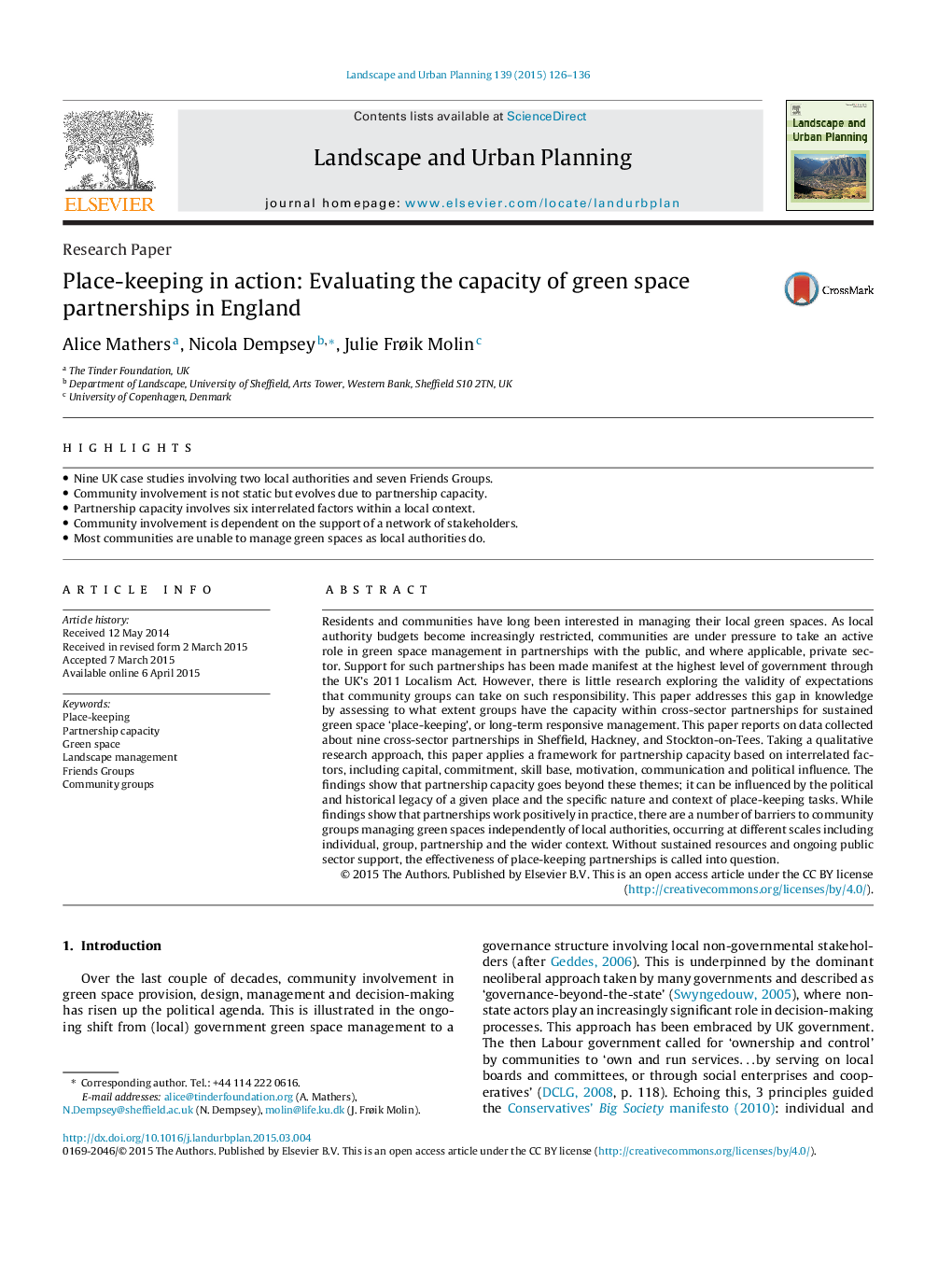| Article ID | Journal | Published Year | Pages | File Type |
|---|---|---|---|---|
| 7461198 | Landscape and Urban Planning | 2015 | 11 Pages |
Abstract
Residents and communities have long been interested in managing their local green spaces. As local authority budgets become increasingly restricted, communities are under pressure to take an active role in green space management in partnerships with the public, and where applicable, private sector. Support for such partnerships has been made manifest at the highest level of government through the UK's 2011 Localism Act. However, there is little research exploring the validity of expectations that community groups can take on such responsibility. This paper addresses this gap in knowledge by assessing to what extent groups have the capacity within cross-sector partnerships for sustained green space 'place-keeping', or long-term responsive management. This paper reports on data collected about nine cross-sector partnerships in Sheffield, Hackney, and Stockton-on-Tees. Taking a qualitative research approach, this paper applies a framework for partnership capacity based on interrelated factors, including capital, commitment, skill base, motivation, communication and political influence. The findings show that partnership capacity goes beyond these themes; it can be influenced by the political and historical legacy of a given place and the specific nature and context of place-keeping tasks. While findings show that partnerships work positively in practice, there are a number of barriers to community groups managing green spaces independently of local authorities, occurring at different scales including individual, group, partnership and the wider context. Without sustained resources and ongoing public sector support, the effectiveness of place-keeping partnerships is called into question.
Related Topics
Life Sciences
Agricultural and Biological Sciences
Ecology, Evolution, Behavior and Systematics
Authors
Alice Mathers, Nicola Dempsey, Julie Frøik Molin,
